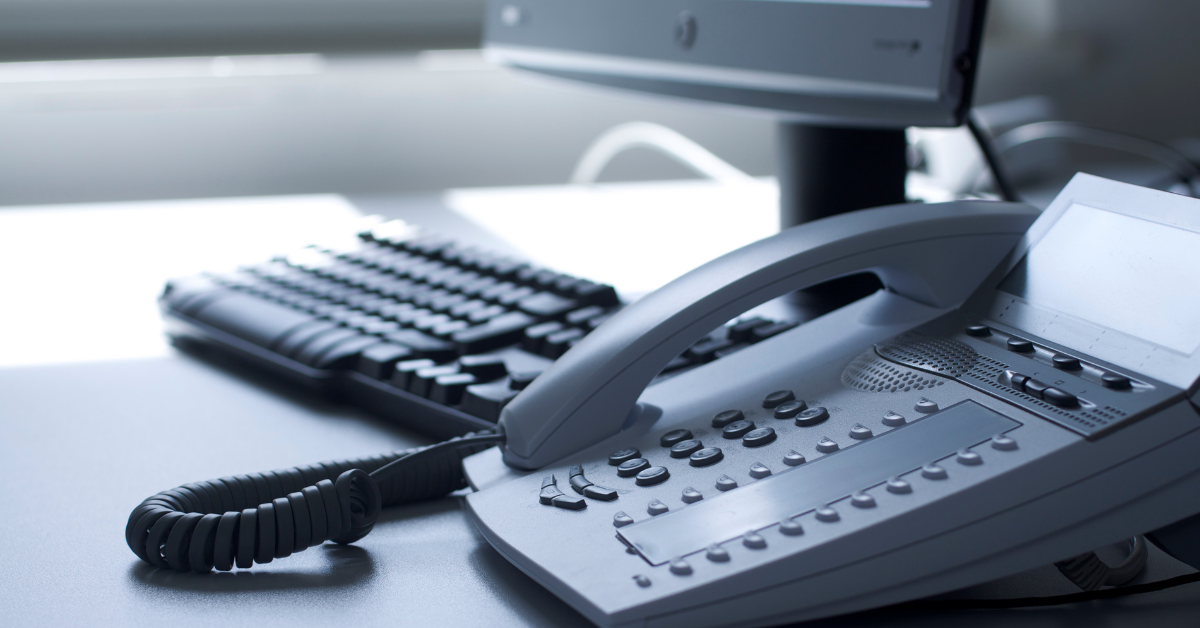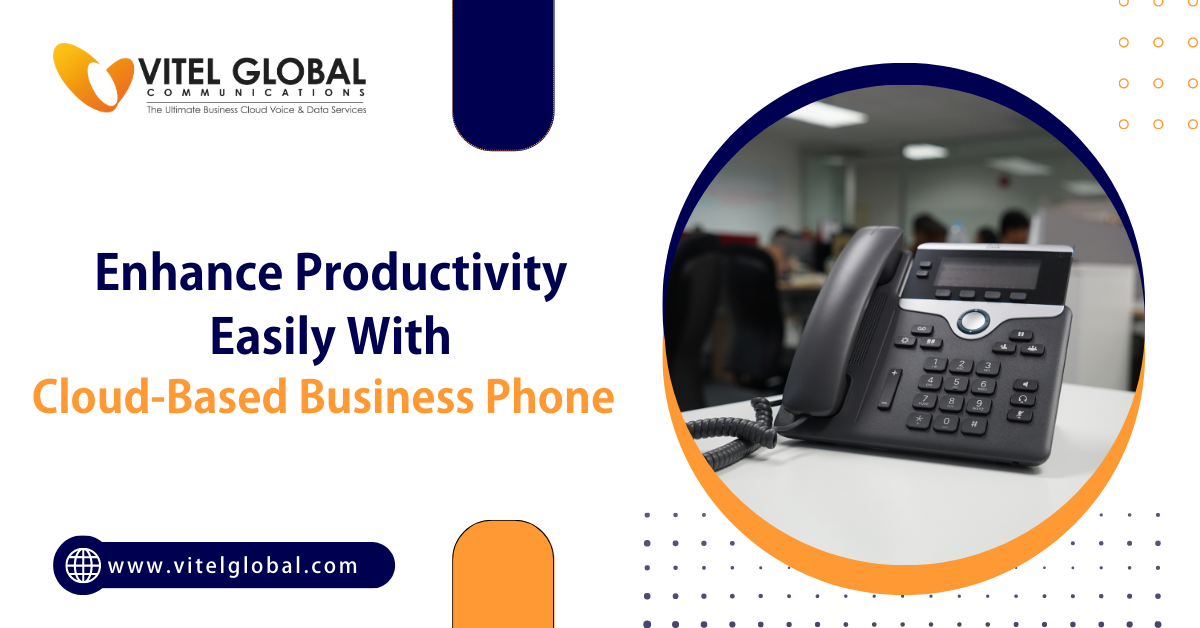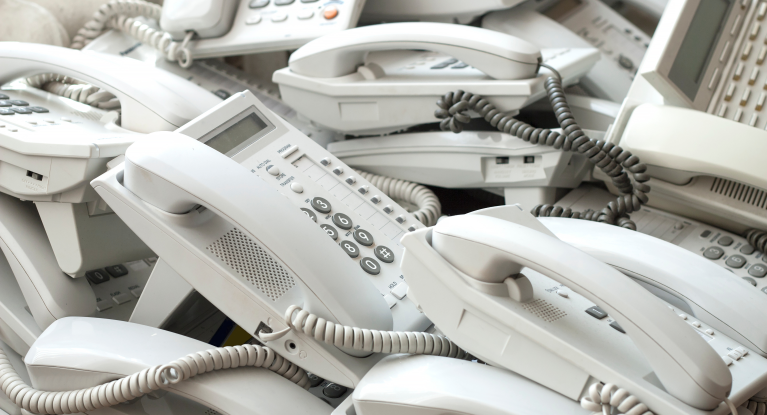VoIP Hacking: Is it Possible?

4 min read
Does VoIP hacking work? Or is it just a myth? Anything online is vulnerable to hacking. Before the subject, one must understand that there are ethical hackers that do the operation with the organization’s knowledge to find and troubleshoot the issues. On the other hand, unethical/ black hat hackers do the same for additional purposes that can be criminalized.
In this blog, we will describe VoIP hacking, types of VoIP hacking, and some factors through which one can understand that their respective system is hacked.
Why Do Businesses Prefer a VoIP Phone?
Because it is affordable, dependable, portable, and has many valuable features. VoIP phone systems are available at many businesses handling significant phone calls.
According to studies, businesses that use VoIP can save communication costs up to a great extent.
However, because of the potential risk of VoIP hacking, IP telephony presents a security risk to a company’s critical data. Nowadays, businesses keep their data in the cloud, and these methods are easing their efforts to store the data. Every operation takes place online.
This article goes into great length on the subject, including all the information you require and how to tell if you’ve been hacked.
What is VoIP Hacking?
What exactly is the dreaded “VoIP hacking,” then? It is any unlawful hacking attempt to access or steal data from your company’s phone system.
Hackers frequently target VoIP phone systems to spy on calls, steal vital information about your business and consumers, and even make international calls.
Attacks on IP telephony systems typically occur when a business insider unintentionally provides information to con artists. As a result, hackers seize control of your VoIP phone system.
The phone system at your business is typically compromised as a starting point for various illegal activities. These might include obtaining information for using your company’s identity to make purchases or accessing private and sensitive client information.
Types of VoIP Hacking
Have a look at the following types of VoIP hacking:
Unauthorized Activities
Hackers are using your company’s phone network to call organizations or individuals posing as you in this phone system attack.
Software that dials automatically is used by hackers with your IP Phone system, sending a message to people and directing them to carry out specific actions.
When hackers use your VoIP phone, recipients see your caller ID, allowing them to take on your company’s identity and obtain customer information.
Toll Fraud
Hackers make international calls, which cost a lot of money, and your account is charged for the calls. Toll fraud is the term for this.
The attackers use phishing scams to target administrators and system users to gain unauthorized access to your company’s VoIP system.
Spoofing
In most cases, people trust caller IDs. Hackers sometimes use a fake caller ID to call your business and take advantage of your trust in a familiar phone number. They can then use the fake ID for social engineering or another criminal tactic.
Employees who aren’t expecting it might give hackers access to your company’s cloud-based phone system by sharing important information with them.
Eavesdropping
Did you know that your business calls and recordings, like voicemails, can be listened to by eavesdroppers without your knowledge? As a result, you must take precautions to stop criminals from listening in on voice communications on your VoIP system.
Eavesdropping, on the other hand, can only occur if your data is not encrypted or if it is all on the local network.
Using insecure networks without Secure Real-time Transport Protocol (SRTP) or Transport Layer Security (TLS) is a security flaw that could allow hackers to monitor the network.
Hackers are among the potential dangers that could result from eavesdropping. Selling your customers’ information and intellectual property to competitors and blackmailing your company with confidential information.
Social Engineering
Social engineering uses human interaction rather than the technical aspects of a VoIP system. The poor execution of social engineering campaigns is one factor that encourages this hacking strategy. The risk of fraudulent phone calls by potential attackers disguised as their callers’ identities is rarely discussed with employees.
Your employees give information to social engineering scams because the calls seem urgent, and they don’t think anyone is trying to harm them.
Signs That Your VoIP System Has Been Hacked
Even though using VoIP phone systems can help you save expenses greatly, attempts to hack these phone networks have been on the rise recently.
The following are the indications that your VoIP system may have been compromised:
A Sudden Rise in Phone Bills
If your business uses VoIP, you shouldn’t have to pay more for phone bills. Therefore, check to see if there have been any significant, sudden increases in your bill. That is a red flag, despite your desire to ignore it and view it as insignificant.
Unknown Numbers in The Call History
Do you frequently review your call history?
If you don’t already, you should get started right away! Because it’s one of the best ways to find out if your company’s cloud-based phone system has been hacked.
Hackers might have attacked you when the strange calls start showing up more often in your call log. It can assist you in discovering VoIP hacking.
Word of Extension
As hacking is an unauthorized activity, it must be considered seriously for your organization and customers.
This blog has discussed the types of VoIP hacking and some simple ways to understand whether your IP phone system is hacked.
We will come up with tips and techniques to troubleshoot VoIP hacking. For more information about VoIP services for your business, you can request for a free live demo.
Published: October 19th, 2022
Subscribe to Our Latest Updates
Get monthly product and feature updates, the latest industry news, and more!





